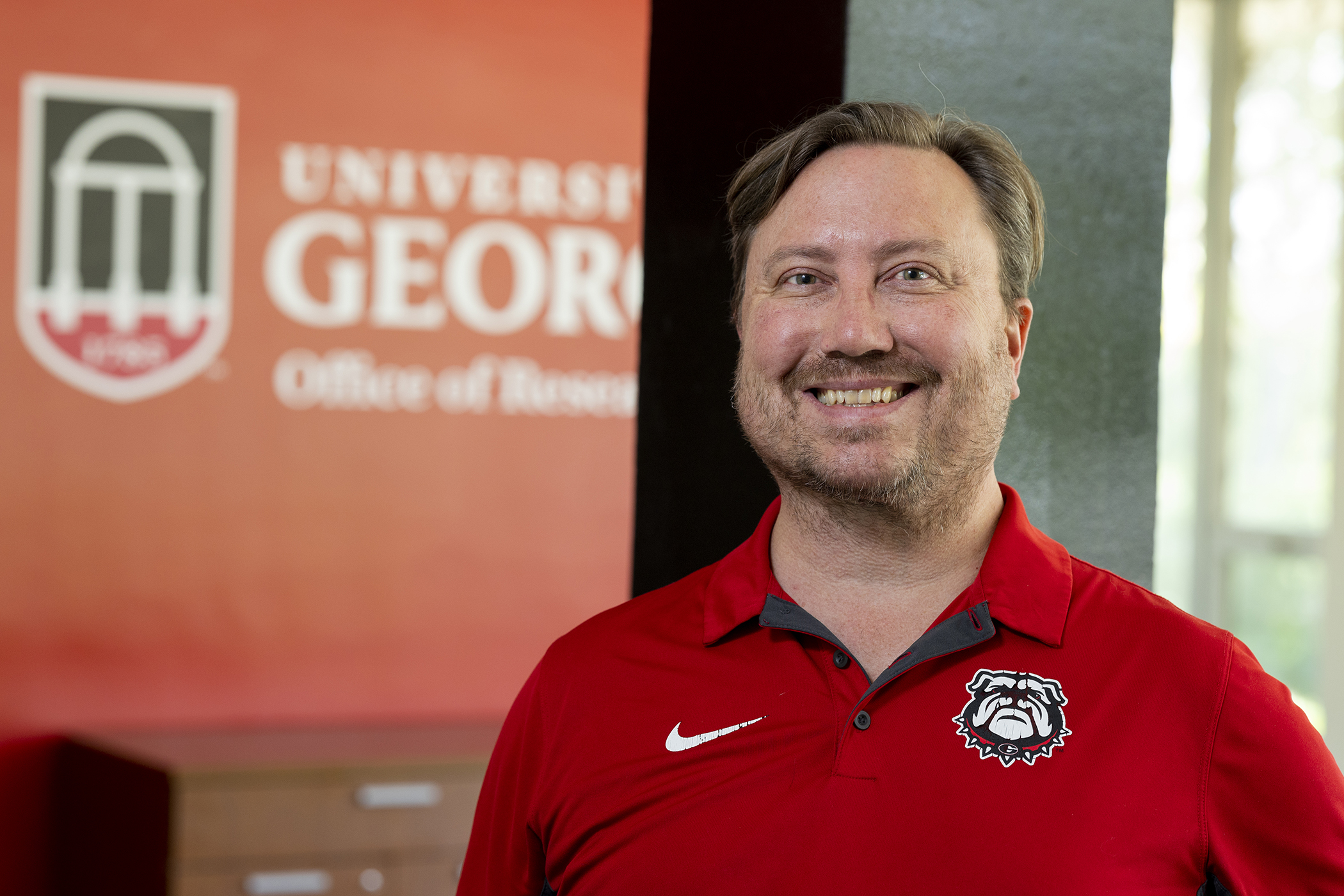As president of Friends of the Greenway, Jake Maas spends his weekends removing invasive species from the Oconee Rivers Greenway, the frequently flooded lowlands surrounding Athens’ two rivers.
“We have a huge problem with invasive plant species, mostly things that people buy for their gardens that don’t have anything that eats them here. They escape into the wild and take over an entire ecosystem,” he said.
Maas wants to improve the urban ecology of Athens by promoting smart city planning and the expansion of bike and pedestrian resources.
When he’s not advocating for better environmental stewardship, Maas directs the Office for Proposal Enhancement within the Office of Research.
“Jason Locklin, in the New Materials Institute, is trying to create plastics … that will last exactly as long as you need them to, so a single-use plastic bag you use to bring home groceries can be thrown on the compost,” he said. “That impact is really important to me. I am lucky to be in a job that aligns with my philosophy.”
The Office for Proposal Enhancement helps faculty members across campus write, edit and submit funding proposals to advance research in every field. Obtaining research funding can be a lengthy process, so Maas and the members of his team act as guides for faculty from start to finish. On any given day, Maas is checking in with researchers and creating checklists and timelines for the proposals, editing along the way.
“We help them write so that they both fulfill the vision they want to fulfill, but simultaneously make the sponsors excited because they match up with what [the sponsors are] looking for. It’s sort of a Venn diagram of what the researcher wants to do and what the sponsor wants and being able to really articulate that you’re right in the sweet spot, and that’s how you get started,” he said.
Before becoming the inaugural employee in 2016, Maas worked in the sponsored programs office for eight years. The now named Sponsored Projects Administration handles research administration, meaning they review the final proposal packages, submit them to the sponsor, and negotiate and manage awards. The proposal enhancement office jumps in much earlier in the process, helping to create the building blocks of a successful grant proposal.
“The goal was to get more large, complex proposals, high dollar value proposals funded at UGA. That’s the mission of the office, but there are lots of ways to get there,” said Maas.
The University of Georgia is classified as an R1 institution, meaning there is a very high level of research activity and there are many resources available to aid research. Part of that classification is the success of the university in receiving research funding and putting it to work.
“The Complex Carbohydrate Research Center is a unique resource and in anything related to glycoscience, they are highly competitive, maybe even the top candidate in a lot of cases,” said Maas. “Centers like the Center for Tropical and Emerging Global Diseases, anything infectious disease related, the College of Veterinary Medicine is successful in lots of places. But, for example, we have a relatively new College of Engineering, and they are super go-getters, and they apply for a ton of grants.”
Maas thinks about how to perfect each proposal rhetorically, pulling from his experience in the sponsored programs office and his English education.
“I have a master’s degree in English, and I was ABD [all but dissertation] for my Ph.D. in English at the University of Wisconsin,” said Maas. “So, I’m coming at it from an argument perspective and rhetoric, like ‘This is what the grant is, and here is an argument for funding.’ Everything has to be laser focused on that goal, of that exchange, that’s going to take place. We’re going to give you science, and you’re going to give us money to do it. So, what is your return on investment going to be, which is kind of a mercenary way to put it, but that is what it comes down to, and there’s room for creativity and excitement.”
The university submits around 2,700 proposals each year from every department on campus, 100 or so of which go through the proposal enhancement office.
Maas said his office does outreach through various grantsmanship training, workshops, guest speakers and panel discussions to gradually increase the grant writing abilities of the faculty.
“There is definitely an instructional aspect to it,” said Maas. “We are a small office, and we may not be able to help everybody who directly applies, but we can give them some tools so that they have a starting place.”


